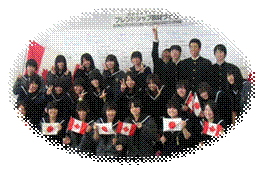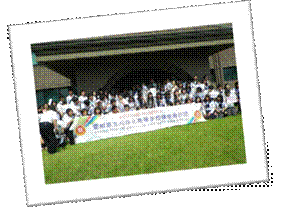
| @@Introduction to Kariyakita High School School Timeline @Here is a brief history of Kariyakita High SchoolI |
| s1921 04.01t | Our school was founded as Kariya Womenfs High School. |
| s1951 04.01t | It was renamed as Aichi Prefectural Kariya Commerce and Home Economics High School. |
| s1968 04.01t | It was renamed as Aichi Prefectural Kariyakita High School. (the home economics course was closed and a general course was added) |
| s1973 04.01t | It was renewed as a coeducational school. (the commerce course was closed) |
| s2008 04.01t | The Global Understanding Course (KGUC) was added. |
| s2010 04.01t | It began to admit returnee children (children returning from foreign countries). |
| s2011 11.05t | Its 90th anniversary ceremony was held. |
| s2012 07.08t | Signing the sister school agreement with Stephen Lewis Secondary School in Canada. |
| s2015 04.07t | Signing the sister school agreement with Korea Tourism Senior High Scool in Korea. |
| s2015 09.18t | Signing the sister school agreement with McClellan College Secondary School in Australia. |
| KGUC welcomes students with international aspirations, and wefve set the
goal of nurturing our students to have a global mind. In order to achieve this goal we hold up these three major objectives: to improve English communication skills, to promote understanding of different cultures, and to conduct exchange between overseas students and ours. |


| Special
English language curriculum KGUC offers to students its organized language program in which students learn English from ALTs (assistant language teachers), read full-length works in English, join the KGUC English speech contest, and so on. |
| Computer-Assisted
Language Learning room This room is open to KGUC students and the UNESCO club. Students can make use of this lab not only during regular class hours but also after school for listening, practicing English conversation, and using the Internet. |
| Exchange
Programs We have already established several exchange programs, in which students visit sister schools in Canada and Korea. There, they learn English, and can exchange cultures with students there. |